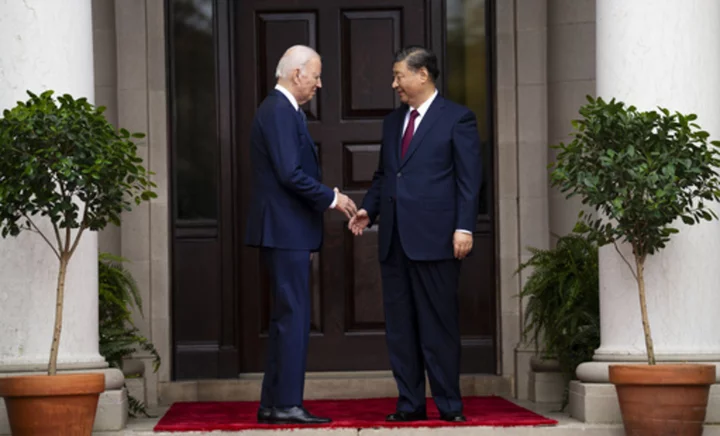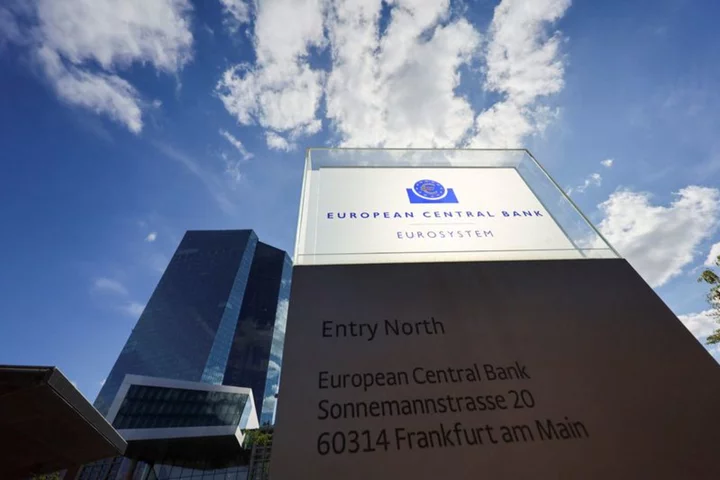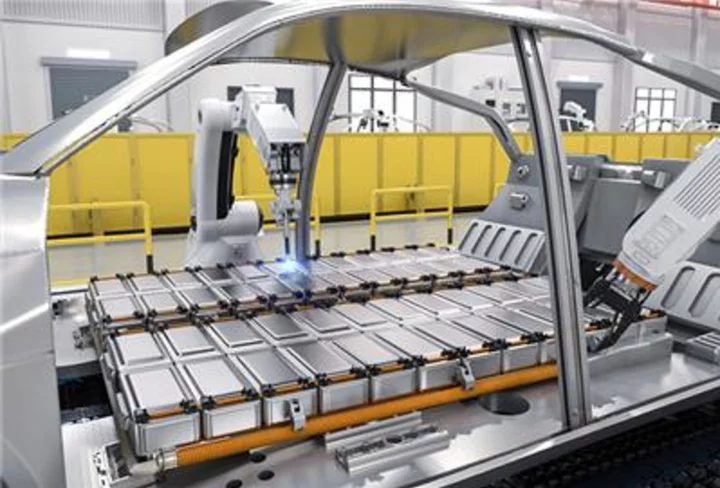TAIPEI, Taiwan (AP) — Perhaps just shaking hands and sitting down together can be enough sometimes.
At their four-hour meeting Wednesday, U.S. President Joe Biden and his Chinese counterpart Xi Jinping didn't resolve any of the vital geopolitical issues dividing the world's two largest economies and chief rivals for global influence, but they struck a conciliatory tone that came as a relief to other countries, especially China's neighbors.
The two leaders met at a northern California country estate, holding talks, lunching and taking a garden stroll designed to show that while the two countries are global competitors, they’re not locked in a winner-take-all faceoff.
“Planet Earth is big enough for the two countries to succeed,” Xi told Biden.
Biden emphasized the need to avoid miscommunication. "We have to ensure competition does not veer into conflict,” he said.
The leaders' first face-to-face encounter in a year appears to have put a floor under a relationship that at times has seemed to be in freefall over various issues, from trade and technology to U.S. support for Taiwan, China's human rights record and even the source of the COVID-19 pandemic.
Taiwan's Foreign Ministry appeared to welcome the warming of relations, noting the U.S. had again laid down the bottom line that China must use peaceful means in dealing with the self-governed island that Beijing claims as its own territory, to be taken by force if it deems it necessary.
"We express our affirmation and welcome for President Biden again making use of the venue of a meeting with the leader of China to again openly press the strict U.S. position insisting on peace in the Taiwan Strait," spokesperson Jeff Liu said.
South Koreans watched the meeting with a mixture of hope and skepticism. Living with a growing nuclear threat from rival North Korea, the South primarily focuses on ensuring its security through its crucial military and diplomatic ally, the U.S. Seoul has chafed at Beijing’s unwillingness to back stronger sanctions and pressure on Pyongyang over its nuclear and missile programs at the U.N. Security Council.
But South Korea's largest trading partner is China, and the Biden's administration's steps to restrict sales of advanced chip technologies to China set off furious lobbying to minimize the impact on South Korean semiconductor makers like Samsung Electronics and SK Hynix.
In an editorial on Thursday, South Korea’s Kookmin Ilbo newspaper said a meaningful improvement in U.S.-China relations would have major consequences to global supply chains and the “composition of the new Cold War between North Korea-China-Russia and South Korea-U.S.-Japan.”
During this year's summit of the Asia-Pacific Economic Cooperation forum, being held in San Francisco, Japanese officials have focused more on trying to arrange a meeting between Prime Minister Fumio Kishida and Xi to help persuade Beijing to lift a ban on imports of Japanese seafood due to the release of treated wastewater from the wrecked Fukushima nuclear power plant.
Seafood exports are just one element in Tokyo's often fraught ties with China, where anti-Japan sentiment left over from before and during World War II is at times fanned to promote loyalty to the ruling Communist Party. Tokyo and Beijing have long feuded over ownership of unpopulated East China Sea islands and underwater mineral deposits.
Before leaving for California, Kishida told reporters a meeting with Xi had not yet been decided on.
"We plan to have various forms of communication,” he said.
Back in China, the state-run media curated Xi's talks with Biden to highlight China's stature as a global equal to the United States, said Madoka Fukuda, a professor of international politics and China studies at Tokyo's Hosei University.
“China is stressing to its own people that the country is a global power that serves an important role in the international community, prompting their nationalism at home,” she said.
The aura of goodwill generated by the meeting was marred somewhat, however, by a comment by Biden. When pressed by a reporter to say whether he trusted Xi, he said he believed in trusting but verifying, and conceded that China’s leader is a dictator.
“He is a dictator in a sense,” Biden said.
That drew a stout response from a Chinese Foreign Ministry spokesperson, Mao Ning, who said, “Such a remark is extremely wrong and is irresponsible political manipulation.”
“It needs to be pointed out that there have always been people with ill intentions who try to sow discord and undermine the China-U.S. relations," she said.
Mao reaffirmed China's position that the U.S. should not provide Taiwan with armaments or back its independent role in international affairs. But she affirmed that the meeting in San Francisco was an important step to "enhance trust, dispel misgiving, control differences and expand cooperation between China and the U.S."
"It is also an important meeting to inject certainty and enhance stability into a turbulent and changing world," she said. “But San Francisco is not the end, and it should become a new starting point.”
Beijing residents asked about the meeting said they hoped for a relaxation of tensions with the U.S., where tens of thousands of Chinese students travel to study each year and an untold number have settled down for work.
“I feel that China-U.S. relations have eased, and maybe the next step will be cooperation,” said Xu Jiaguang a 31-year-old firefighter. He echoed a comment by Biden that only by sitting face-to-face can potential adversaries find common ground and said he hoped the tete-a-tete would be "a great help.”
Tensions with the United States have the “biggest impact on ordinary people,” said Gao Kexin, 23, a Beijing hospital worker. "I hope the relationship can be eased, so that people can live a happier life,” he said.
While tensions appear to have cooled, the two sides remain in contention over which is calling the shots in the relationship, said Zhao Minghao, a professor of international relations at Shanghai's prestigious Fudan University.
“The Biden administration has been attempting to exhibit that they are the dominator of the pace of China-U.S. relations, making the outside world feel that it is China that doesn’t want to cooperate and communicate," Zhao said.
“There has been a big change this time and China hopes to show that Beijing is committed to responsibly managing China-U.S. relations,” Zhao said.
___
Associated Press writer Mari Yamaguchi in Tokyo and video producer Caroline Chen in Beijing contributed to this report.









